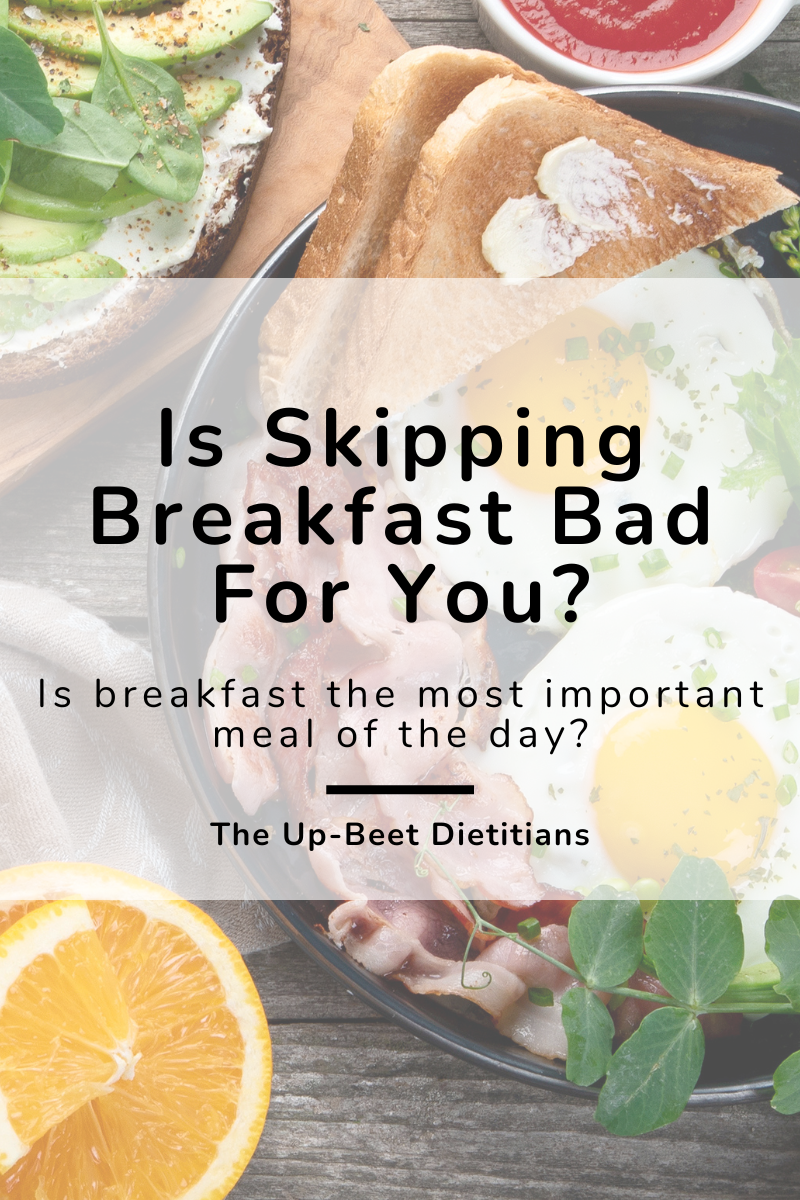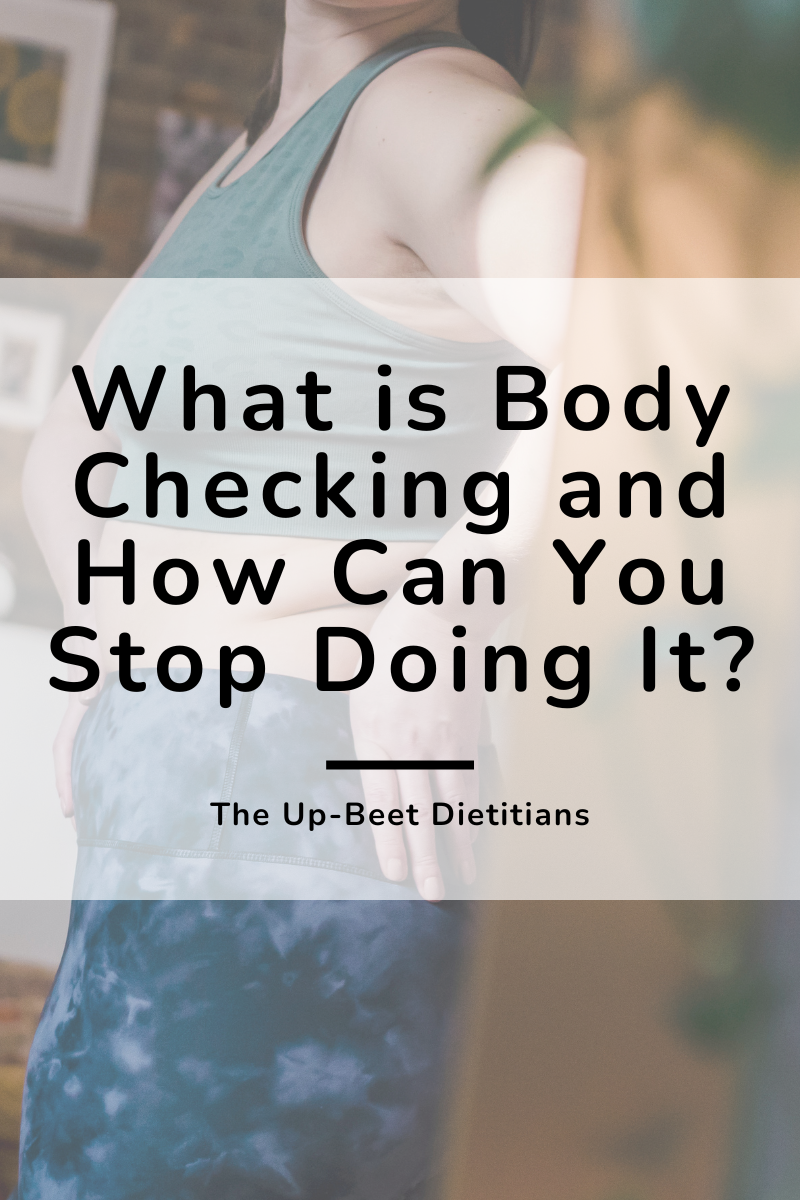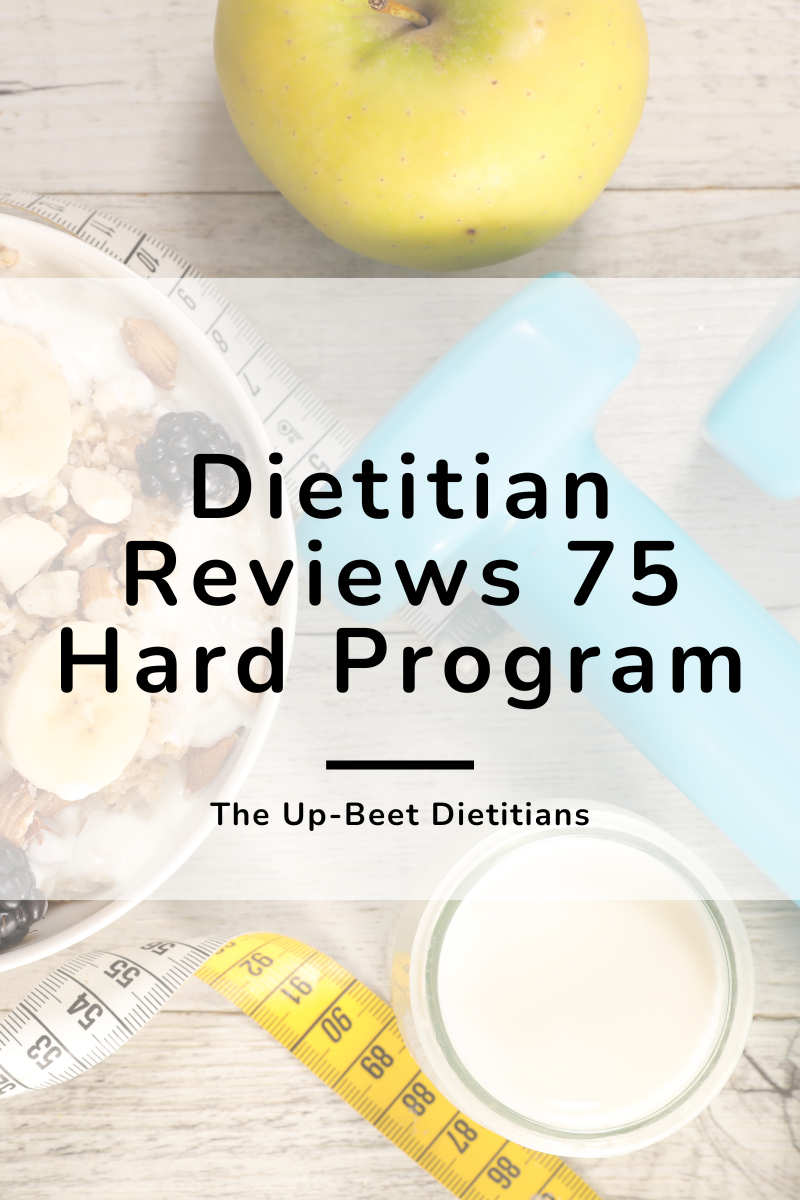Is Skipping Breakfast Bad for You?
Written by: Emily Krause, MS, RDN, LD
Is breakfast the most important meal of the day? What happens if you skip it?
One of the biggest debates in nutrition history has been what meal is the most important of the day. Recently, there have been many claims that breakfast is the most important meal of the day. Is this true?
6 benefits to eating breakfast
Helps you establish a morning routine
When we take time in the morning to eat breakfast, it helps us slow down and not feel rushed. Establishing a morning routine helps you not only feel a bit more organized and in control of life, but it’ll also help you slow down and slowly wean into your day. Having a consistent task like eating breakfast will start your morning off with a sense of accomplishment and lead you feeling fresh and ready to succeed!
An immediate boost of energy in the morning
If you struggle with low energy and feeling groggy in the morning, breakfast can help! Eating something will help improve your blood sugar levels immediately and give you some quick energy. We recommend trying not to eat a carb by itself - try to pair it with a protein or fat when possible.
Promotes blood sugar stabilization
When we wake up in the morning, we’re coming off a fasted state (a fasted state is when you don’t eat anything). If we go too long without eating in the morning, our blood sugar levels will start to drop and we may experience fatigue, headaches, or “hangry” symptoms. Additionally, if you eat in the morning you may snack less throughout the day or binge at night. Snacking isn’t necessarily a bad thing! But frequent snacking with little satisfaction could be a sign of unstable blood sugar levels
Reduces cortisol levels in the morning
Our cortisol levels, the stress hormone, are highest in the morning. One of the easiest ways to lower them is to eat! This doesn’t need to be a full blown meal - any type of food item would count. We will note coffee and tea wouldn’t lower cortisol levels unless you added a collagen or protein powder to them. If we eat within 1-2 hours of waking, we’ll easily lower these cortisol levels and help with internal stress management.
Breakfast is an easy way to get in some fiber
Fiber is one of the most common nutrients that Americans undereat. An easy way to get in some fiber is to start your morning off with some veggies and fruit! You can easily add some non-starchy veggies and fruit to your smoothie, add veggies to your egg scramble, and make egg muffins with veggies in them. So simple and fun!
Another way to sneak in some fiber in the morning is by choosing whole wheat bagels, toast, and English muffins. Be sure to apply the Intuitive Eating principle of gentle nutrition here - only choose these whole wheat varieties if they won’t take away from the satisfaction of the meal.
You could also add chia seeds, flax seeds, or hemp hearts to your breakfast of choice to increase the fiber content. For example, toss a tablespoon of chia seeds on your oatmeal, add flax seeds to your smoothie, or sprinkle hemp hearts on some avocado toast.
Don’t want to exercise coming off a fasted state
Have you ever heard anyone argue that working out in a fasted state will improve your performance and help you burn through fat quicker? This isn’t necessarily true. When we exercise in a fasted state, our body doesn’t have accessible glucose stores to use. The readily available glucose stores come from food! It’s easier for our body to convert muscle into energy compared to fat (we know, no one wants to hear that), so our body will burn through muscle for that easy energy. Eating something small before workouts in the morning has shown to improve energy during workouts and improve performance overall!
We would not recommend skipping breakfast! There are many more benefits to eating breakfast, but these are just a couple to start.
Doesn’t intermittent fasting promote skipping breakfast?
So if you’re familiar with intermittent fasting or heard the phrase before, you may be wondering how breakfast plays into this. There are multiple different versions of intermittent fasting and we dive deep into these and intermittent fasting as a whole in our podcast episode. Intermittent fasting can range between 12 to 16 hours of fasting each day and normally breakfast is taken out.
We don’t recommend practicing intermittent fasting since it can affect blood sugar stability, cortisol levels, energy levels, and more. If you find that skipping breakfast doesn’t impact your subsequent nutrition choices or other aspects or your health, that’s okay! But for many reasons, we typically recommend eating breakfast.
What should I do if I have no appetite in the morning or eating makes me nauseous?
If you find that you don’t have an appetite in the morning or the thought of food makes you nauseous, breakfast might not sound very appealing. We still recommend trying to eat something, but there are a couple ways we can go about this!
If you want something that won’t feel as heavy in your stomach, we recommend trying to eat a protein shake or smoothie. You can either mix some protein powder, ice and water together, or you can create a smoothie with fruits, veggies, protein powder, some type of liquid (ex: water, juice, milk, milk variation), and/or nut butter or seeds (ex: chia, flax, hemp, etc.). The world is your oyster! The protein shake or smoothie will help give you that quick boost of energy and stabilize your blood sugar levels, but it’ll feel light enough in your gut that it shouldn’t weigh you down.
If you want to eat something with a little bit more substance and volume, try eating something small like fruit and nuts, a protein bar, or a hard-boiled egg. You could also try adding a protein powder or collagen powder to your morning coffee or tea! We recommend trialing a couple different options to see what might work best for you.
Easy breakfast options
So, with all this talk of breakfast you’re probably wondering what are some examples of easy breakfast options. Here are a couple of our favorites, but you are not limited to these!
High-fiber cereal with fresh fruit and milk (cow’s milk, dairy-free milk, etc., whatever you prefer!)
Protein bar and fruit
Hard-boiled eggs with some fruit
Nut butter toast w/ banana on top
Overnight oats
Protein shake w/ protein powder, veggies, fruit, liquid (milk, DF milk, juice, water) and ice
Smoothie (prepare smoothie bags ahead of time and keep in your freezer for easy and quick access!)
Add collagen or protein powder to your coffee or tea in the morning
Fruit and nuts
Leftovers from lunch or dinner
Your breakfast doesn’t have to be a multi-step, magnificent meal! Keeping it easy, simple, and individualized to you is the best way to go. Even if you aren’t hungry, you can practice practical nutrition which may be beneficial for reasons previously listed.
Is breakfast the most important meal of the day?
So, the golden question - is breakfast the most important meal of the day? It can definitely help you start your morning off well and give you some quick energy, but who’s to say if that’s the most important meal of the day? There are multiple benefits to eating breakfast (see above) and it can help you have a productive, energized day. Eating frequently throughout the day to ensure you’re fueling your body enough is very important, BUT we’re not one to list one meal as the best ones. Call us biased, but breakfast options tend to be some of our favorite types so… maybe breakfast is the most important?!
Want to learn more about Intuitive Eating and how to start your food freedom journey? Join our course to learn how!





